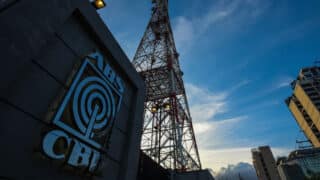Last Monday, the Holy Week hangover was briefly interrupted by reporters scrambling to confirm the scuttlebutt that Cabinet Secretary Leoncio Evasco Jr. had finally thrown in the towel and resigned. Evasco denied it. But not before he had spent a week wailing to the media that he had been reduced to seeing President Duterte only during Cabinet meetings, practically with no access. There was a pitiful tale of his waiting for hours at the airport to show the President some papers, only to be required to hand them over to Special Assistant to the President Bong Go, instead.
For the presidency, the coin of the realm is access. Put another way, you can have an impressive mandate on paper, but if you do not have access to the president, then the paper is worthless. Your mandate requires people to implement it, and guard it against other personalities and agencies eager to expand turf at your expense. Someone’s access to the president’s ear can wield a veto of your mandate and, thus, hamper your ability to function. This is the dilemma of Evasco.
With his communist background Evasco dreamed of a movement that would create a new political vehicle entrenched in government through the proposed reorganization of the bureaucracy—a movement able to operate independently of the coalition of local barons whose loyalties are both expensive and fickle. Go, a skillful bureaucrat in his own right, seems to represent the political pragmatists and entrepreneurs who are not just skeptical but also hostile to such grandiose plans. Evasco was denied the funds to make his movement a reality; he was exiled to Mabini Hall, then buried under an avalanche of paperwork—the consequence of his equally grand empire-building which placed 12 agencies under his direct control—while being denied access to the President.
On the other hand, Go, as the gatekeeper to the president and head of the Presidential Management Staff, has unlimited access and has been using it to great effect versus Evasco (see my columns, Dec. 7, 14, Jan. 18, 25, Mar. 1). The scorecard? Evasco, Go, 2-all: Evasco was knocked out by Sueno on the question of building a movement with the support of Go; Sueno, failing to deliver on rallies and unwilling to give way to Chinese firetrucks, was knocked out by Evasco (perhaps with some help from Go); but Evasco’s person Halmen Valdez was knocked out of the National Food Authority (NFA), although it seems NFA people will also, uh, have to go (if so, a draw: a pyrhhic victory for Go, face-saving for Evasco).
The fight as it is played out in the papers is typically messy but has escalated beyond being mere intramurals over political resources. It is now about that absolute essential for living—rice. Evasco is for allowing private traders to bring in rice, even during the harvest season both for efficiency and as a safeguard against any possible shortfall in the harvest. Go and Agriculture Secretary Emmanuel Piñol, are against this, to protect farmers’ incomes, and on the principle that government should retain its import monopoly on rice.
The problem is, government policy has basically been fixed for 81 years, ever since the National Rice and Corn Corporation (precursor of today’s National Food Authority) was established—that is, government monopoly on importing rice. Repeated controversies –and shortages—and bloating debt have led to calls for government to embrace the free market instead of continuing what has been proven time and again: sinking resources—to the exclusion of other programs—into the pipe-dream of rice self-sufficiency, and being unable to competently warehouse and distribute rice (not to mention moving too slowly, and often too late, to fill shortages when they occur). The Foundation for Economic Freedom and individual economists have recently spoken up forcefully on this.
A case in point: Since the 2016 campaign, much has been said about how millions have emerged from poverty, thanks to programs like the Conditional Cash Transfer, but how easily those individuals could become poor again. Most of all, how despite the growth in the economy, poverty remains entrenched. One reason suggested for this is, gains in income are essentially canceled out by high food prices fostered by the continuing political obsession with rice self-sufficiency.


